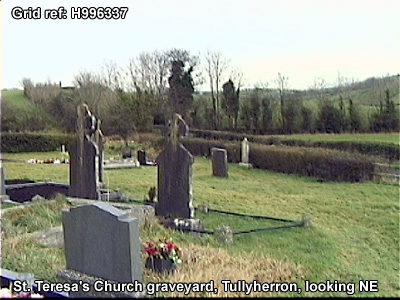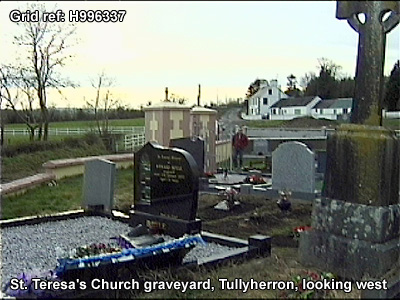 >
>
Organised worship in this area of the Parish of Loughgilly dates back to the wooden
barns used as Mass houses in the 1440s. A field, known locally as Chapel field,
was to have been the original site of the chapel but each morning when workmen
would arrive at the site they would find their work of the previous day dismantled.
To combat this difficulty a barn on an alternative site was used for worship.
As the congregation expanded and the penal laws were relaxed, the congregation
added to the barn rather than construct a brand new church building. The main
gates date from 1813, as does the earliest gravestone at the church. The church
was finally dedicated on 30th May 1869. Recording the dedication, the Newry Reporter
referred to the building as a "beautiful gem of architecture".
Twenty years later, the church was enlarged by the additions of scantuary and side
aisles. Local farmers and tradesmen carried out the work. Further improvements
were undertaken throughout the 1930's when the outside and inside of the building
were plastered. At the same time, a bell was erected in memory of Father Francis
Quinn.
Adapting to the requirements of Vatican II, the altar rails were removed, sanctuary
steps altered, a new altar and lectern installed, the tabernacle removed to the
wall behind the altar, and the baptismal font reset at the front of the church.
These changes were carried out in 1984 to ensure the full participation of the
congregation. The altar was made by Michael King who carved into it the Lord on
the road to Emmaus and St. Teresa of Avila.
The Stations of the Cross were erected in 1929 but during renovations they were
removed and never replaced. The windows behind the altar depict the Holy Spirit
and the Eucharist.
 >
>









